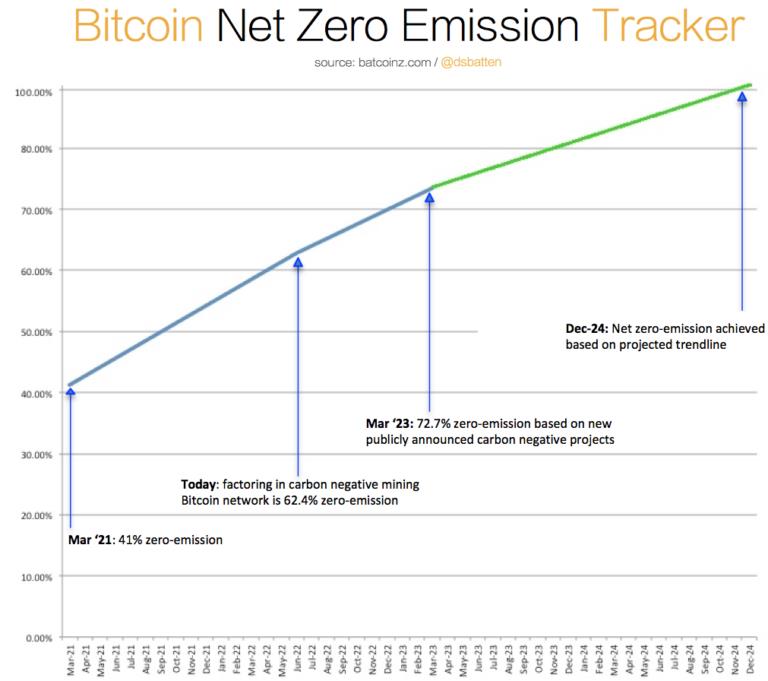
The Bitcoin mining industry has made significant progress in reducing its carbon footprint, a feat that few industries can claim, according to a Bloomberg analyst. The increasing use of sustainable energy in Bitcoin mining has led to a decline in emissions relative to the network's expansion, creating a potential catalyst for institutional and sovereign investment. The growing relationship between Bitcoin's network growth and the global transition away from fossil fuels could pave the way for a wave of capital inflows.
Sustainable Energy Mix for Bitcoin Surpasses 50%
Recent data highlighted by Bloomberg crypto market analyst Jamie Coutts reveals that the sustainable energy mix for Bitcoin mining has been on the rise since 2021, reaching over 50%. This upward trend has contributed to a slowdown in emissions growth despite the network's expansion. Coutts believes that Bitcoin's ability to scale while reducing its carbon impact is a remarkable achievement that sets it apart from other industries.
The Incentive for Green Mining
A key driver behind the decline in carbon intensity within the Bitcoin mining industry is the significant role of energy in operational costs. As energy constitutes well over 50% of mining expenses, Bitcoin miners are incentivized to seek out the cheapest energy sources available. This search for cost-effective energy has led to a rise in hashing power while simultaneously reducing emissions.
Bitcoin Network's Potential Impact on Global Carbon Emissions
If Bitcoin's network scales to accommodate hundreds of millions of users, the overall impact on global carbon emissions is predicted to be minimal. In fact, the technology itself could play a pivotal role in the transition away from fossil fuels, according to Coutts. The scalability and decreasing carbon footprint of Bitcoin make it a promising solution in the quest for sustainable energy alternatives.

Debate Over Sustainable Energy Usage
The percentage of sustainable energy used in Bitcoin mining has been a topic of debate. While Cambridge University's model, which hasn't been updated since January 2022, suggests that mining from sustainable sources is only 37.6%, climate technology venture investor Daniel Batten argues that the figure is actually above 50%. Batten claims that Cambridge's calculations overlook off-grid mining and methane mitigation.
Bright Future for Bitcoin's Carbon Neutrality
According to Batten, Bitcoin mining emissions intensity has reached its lowest-ever level, and he predicts that the network will achieve carbon neutrality by December 2024. Looking ahead, he believes that by 2030, the Bitcoin network will mitigate ten times more emissions than it produces, a remarkable achievement for sustainability in the cryptocurrency industry.






